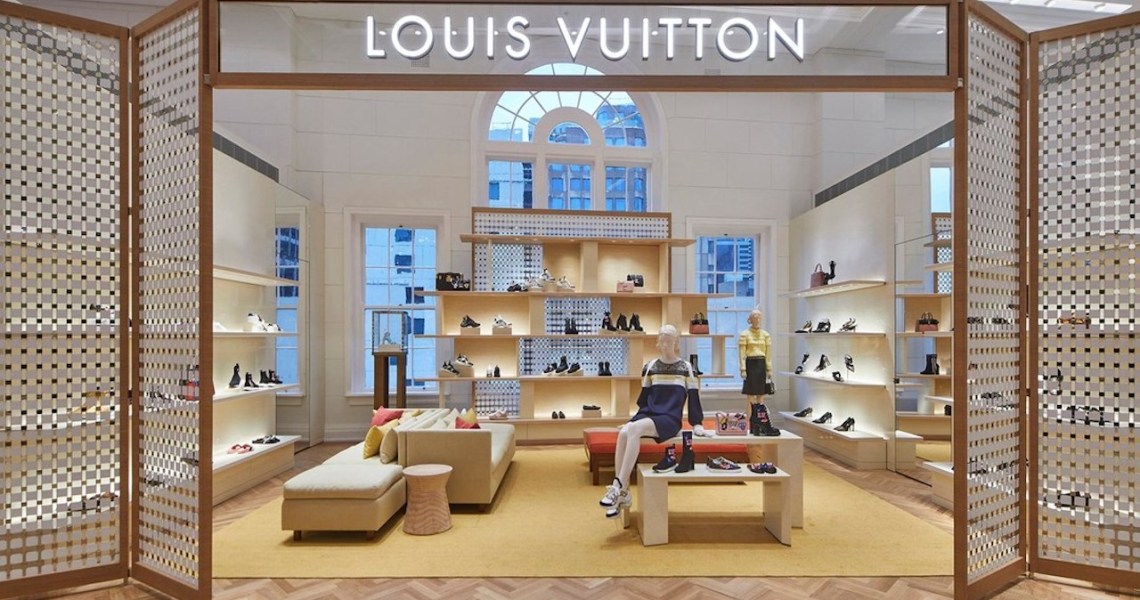In the old days of luxury retail, clienteling often took the form of a black book filled with the highest value of clients’ names, addresses and phone numbers. Today, that black book is more likely to be an iPad.
The process through which high-end brands and retailers build personal relationships with customers has always been a staple of luxury. If a consumer is spending $10,000 on a coat, they expect a personalized experience on the sale. However, luxury brands have been slow to adopt some of the most helpful digital tools like mobile checkout and online style recommendations that can make clienteling in the modern retail landscape easier.
“Mobile checkout, inventory lookup, chatbots, these are all tied to clienteling because they power the service experience,” said Brian Long, CEO of Attentive. “The problem for a lot of those brands is consolidating all of those services into one platform. Big luxury brands are pretty slow-moving.”
Not all luxury brands are interested in change. Chanel still famously refuses to touch nearly anything related to online shopping let alone ambitious digital clienteling tools. On the retail side, Neiman Marcus dissolved its innovation lab earlier this year, which the lab’s founder Scott Emmons said was due to not putting enough resources towards digital.
But newer luxury entrants are trying. 11 Honore, fresh off a big $10 million funding round led by Greycroft Ventures and Nordstrom, is pouring the majority of its new cash into expanding its clienteling services. For CEO Patrick Herning, that will primarily be expressed by mobile where much of its digital selling today is done.
“The biggest priority for us right now is building out the client services side,” he said. “A lot goes into that: technology, inventory management, staffing and empowering the team to run a successful service. High touch clienteling is the priority, but we also need to ensure that we can serve the customer remotely just as well as in-store. That can be via text or a phone call, but it’s all about building the relationship.”
Luxury brands and retailers like Bloomingdale’s and Saks Fifth Avenue frequently use opt-in texting services to build relationships with customers. Salesfloor, which is used by Neiman Marcus and Saks Fifth Avenue, let customers receive direct text messages from sales associates, who can then recommend products and give style advice remotely.
Ad position: web_incontent_pos1
“Clienteling is no longer only about the cash register,” said Ben Rodier, co-founder and chief client officer of Salesfloor. “It is about having a conversation with a customer. The luxury customer today is just like most customers: time-starved. They have other priorities, but still want a luxury experience. There are a lot of ways to do this, but the real challenge we’ve seen is convincing retailers to let their sales associates text people at home and post on social media.”
Because of this, luxury brands are often losing out to mass brands, who are providing better personalized experiences.
A report last month from NewStore that looked at various companies’ digital clienteling and omnichannel experiences found that brands like Nike and Athleta often performed better than luxury brands. Louis Vuitton and Moncler were among the only luxury brands represented in this list. Notably, both have invested significantly in clienteling as of late: Louis Vuitton opened a WeChat client service in China last year and Moncler began using RFID technology to track customers and inventory movement in-store.
Mid-tier brands like Uniqlo have frequently outpaced their higher-priced competitors, too Last week, Uniqlo launched an in-depth style recommendation app designed with Google’s image analysis technology. The app, StyleHint, lets customers upload images of clothing and outfits they like, and then the app offers personalized suggestions for similar or related pieces.
We wanted to create a digital platform that allowed customers to experience our product in a personal way,” said Takafumi Yamaguchi, vp of U.S. digital commerce at Uniqlo. “The app helps edit our offering for our customer based on the image they choose to share, it will be an added level of convenience.”
Ad position: web_incontent_pos2
In 2017, Michael Kors began limiting distribution to other retailers and opted out of participating in couponing and discounts, which CEO John D. Idol said was an effort to protect brand image and project a more high luxury aura. It’s important that luxury brands not cheapen their identity so they can stay competitive. However, if they offer an expensive product with a less impressive customer experience, they risk losing out.




